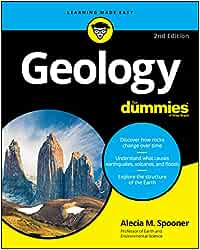Definition
Geology is the scientific study of the Earth, its materials, the processes that act upon them, and the history of the planet and its life forms.
Expanded Explanation
Geology involves studying Earth’s solid features, rocks, the processes by which they change over time, and the history of life as recorded by these rocks. It provides primary evidence for plate tectonics, the history of life, and past climates.
Importance
Geology plays a critical role in our understanding of Earth and its systems. It helps us predict natural disasters, find and manage natural resources, understand climate change, and unravel Earth’s history.
Context and Usage
Geology is central to fields like environmental science, civil engineering, planetary science, and more. It’s used in contexts ranging from exploring for oil and minerals to determining the best place to build infrastructure.
Examples
- Example 1: In oil exploration, geologists study rock and sediment layers to locate possible oil and gas reserves.
- Example 2: In environmental studies, geologists investigate soil and groundwater contamination.
Understanding Geology
A common misconception about geology is that it only involves studying rocks. While rocks are an essential part, geology also encompasses understanding Earth’s processes, history, and the life it has supported.
Related Glossary Terms
- Mineralogy: This is a subfield of geology focused on the study of minerals, their formation, structure, properties, and classification.
- Paleontology: This discipline, often considered a part of geology, studies the life of past geological periods as known from fossil remains.
Visual and Reading Aids
External Resources for Further Reading on the Glossary Term
Related Articles
- The Role of Paleontology in Understanding Earth’s History: This article delves into paleontology, a field closely related to geology.
- Heat and Its Role in Climate Change: A Deep Dive: This piece explores the geological aspects of climate change.

